

Invasive Adirondack smallmouth bass evolve to counter control efforts
The bass rapidly evolved to grow faster and invest more in early reproduction in response to efforts to eradicate them.
All News
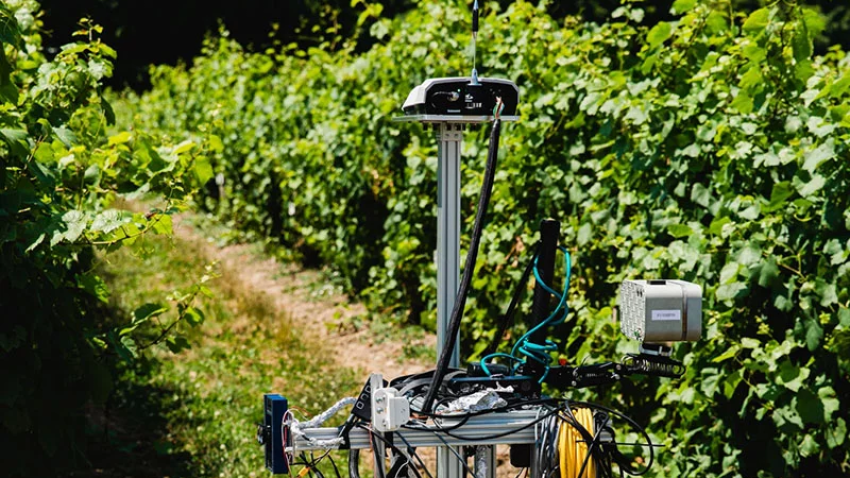
Cornell Institute for Digital Agriculture powers 15 innovative new projects
The Cornell Institute for Digital Agriculture (CIDA) has announced the recipients of its 2025 Research Innovation Fund (RIF) faculty and student grants supporting new, cross-disciplinary research projects designed to improve global food systems through digital innovation.
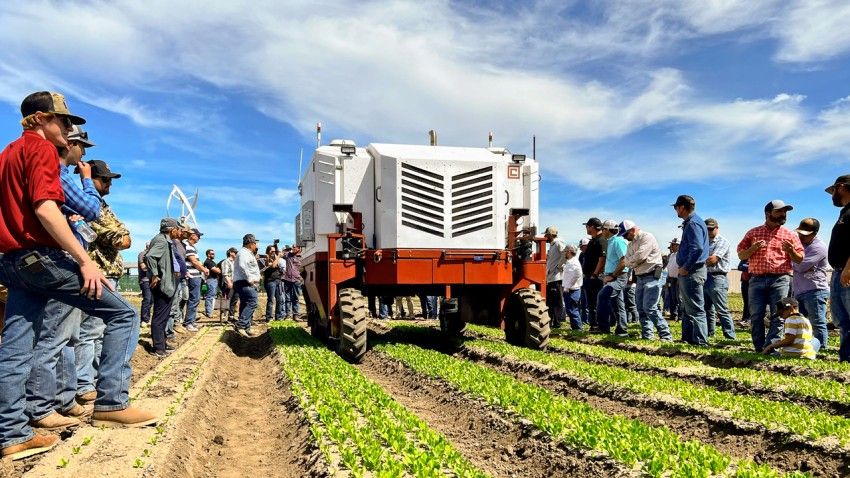
Lasers match common herbicides at zapping East Coast weeds
The study found that the laser weeders worked as well as common herbicides in test plots of East Coast peas, beets and spinach.
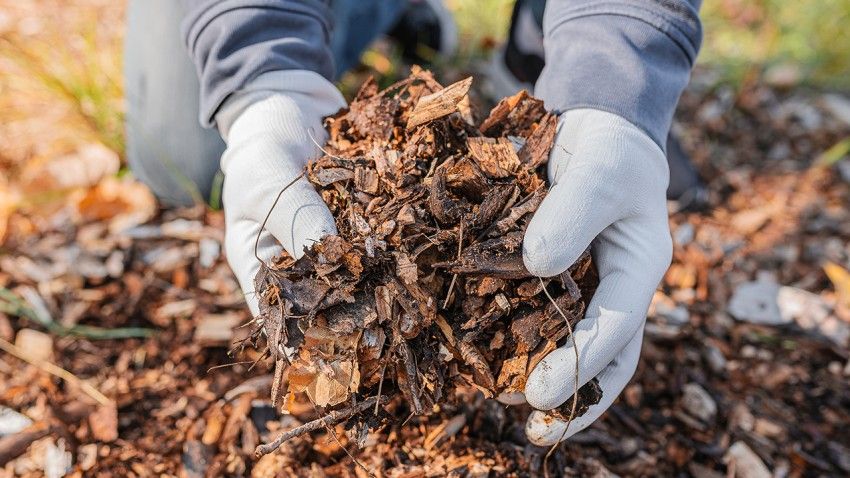
To slow global warming, bury wood debris
Researchers project that burying the wood debris from managed forests could reduce global warming up to 0.76 degrees Fahrenheit by 2100.
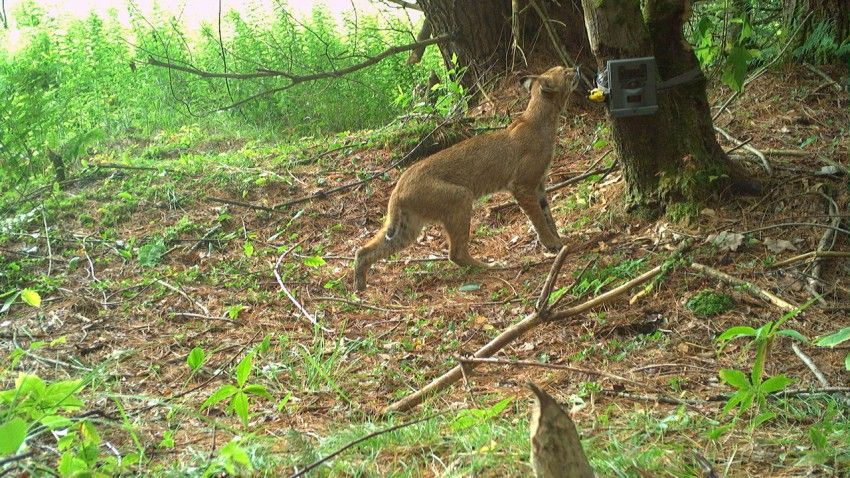
Program seeks NYS volunteers to track wildlife with trail cameras
Snapshot NY aims to collect widespread data about animal populations throughout New York state – using thousands of trail cameras – and is engaging the public to aid the effort.

Plants use ‘weather radar’ to sense temperature
For decades, researchers searched for a single “thermosensor”—a biological thermometer buried deep in the plant’s molecular machinery. But a new theory, led by Avilash Singh Yadav, postdoctoral associate at the Weill Institute for Cell and Molecular Biology and the Cornell College of Agriculture and Life Sciences, is flipping that idea on its head.
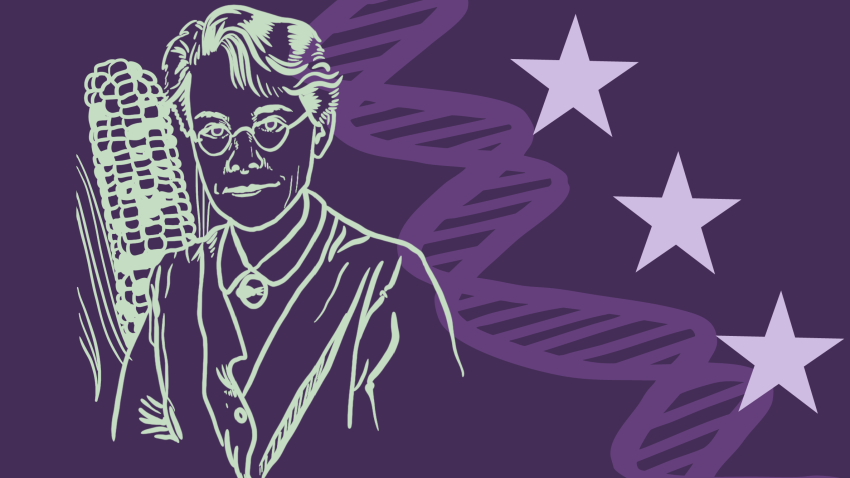
Cornell student campaign for research support reaches 50 states
In a nationwide campaign led by Cornell students, more than 500 scientists have committed to writing letters and op-eds in their hometown newspapers across all 50 states – each one a personal appeal on why public investment in research matters.
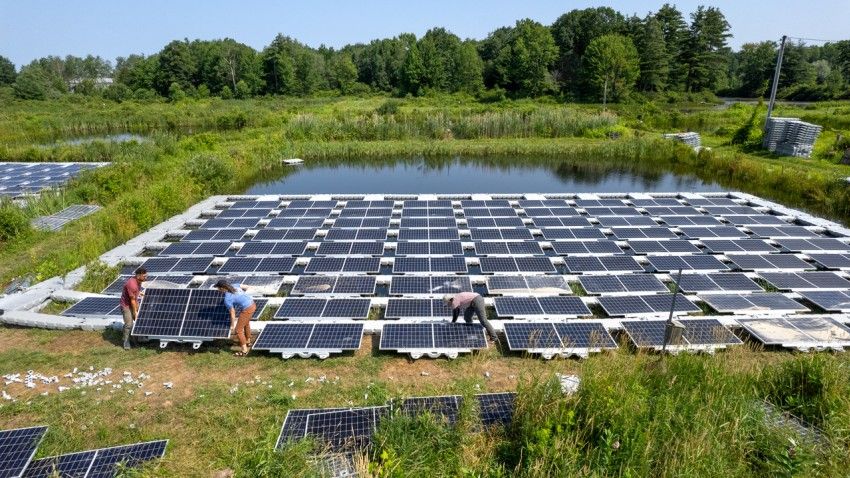
New approach models potential and trade-offs of floating solar
Researchers project significant energy gains from using floating solar on just 3.5% of waterbodies in the Northeastern U.S., even with approaches that preserve biodiversity and recreation.
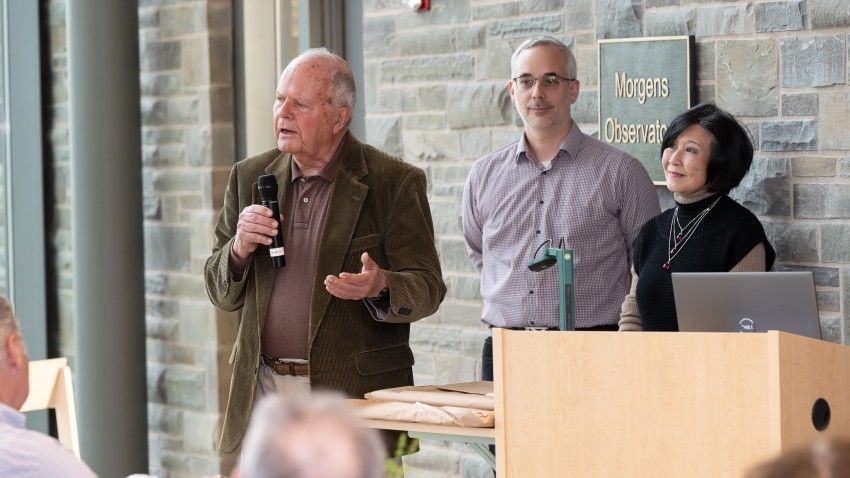
New $1.5M graduate research fellowship honors former director of the Cornell Lab of Ornithology
A new $1.5 million gift from philanthropist K. Lisa Yang ’74 has established the Charles Walcott Graduate Research Fellowship in Conservation Bioacoustics to fund graduate research at the Lab of Ornithology in honor of Walcott, professor emeritus and executive director of the Cornell Lab of Ornithology during 1981-95.
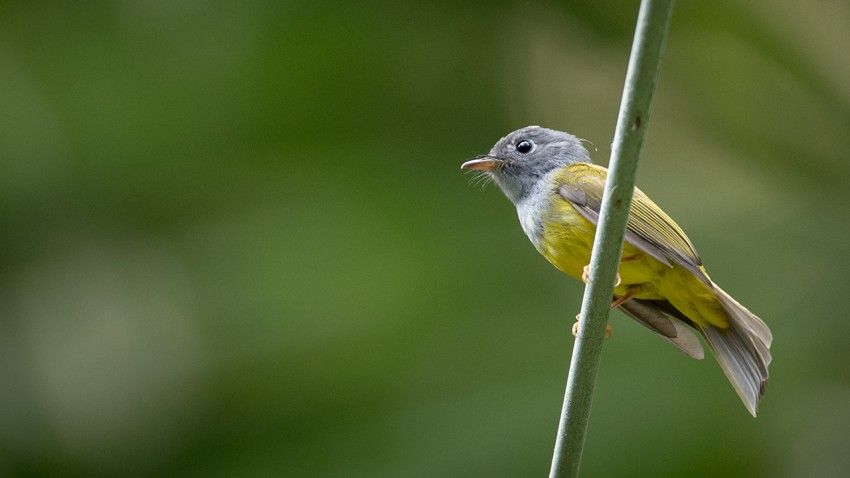
Study reveals why the early bird sings early
New research finds that territorial behavior and diet help explain why some birds sing more often at dawn, challenging traditional theories about dawn choruses.

Kimberle Lau wants to treat your sweet tooth, but in a healthy way
Kimberle Lau ’01 is the founder of Bake Me Healthy, a company that offers plant-based, allergen-free and upcycled baking mixes and cookies.
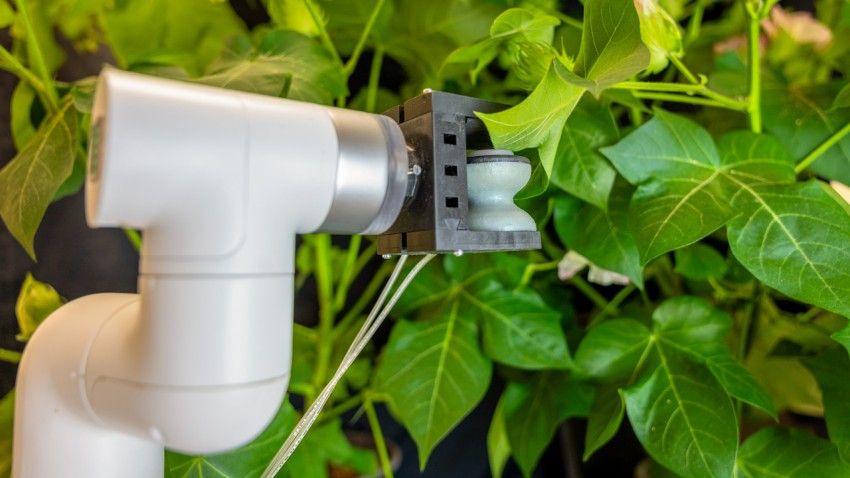
Soft robotic gripper injects leaves with precision
Cornell researchers have developed a soft robotic device that gently grips and injects living plant leaves with sensors that help it detect and communicate with its environment. The robot can also inject genetic material into the leaves.
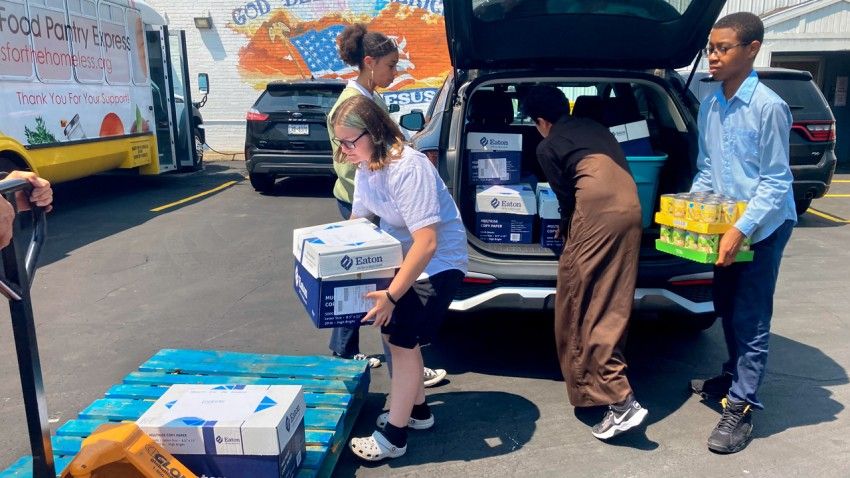
Buffalo area 4-H program empowers teens, opens doors
For 10 years, the Youth CAN program has empowered students in Buffalo schools to execute projects that contribute to their communities, while gaining skills and experiences that will help them build careers.
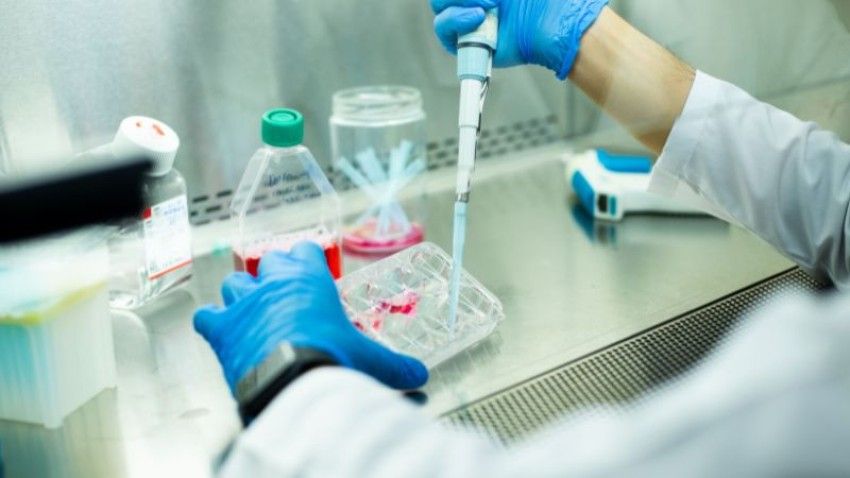
Newly discovered ovulation regulator holds promise for managing infertility
Cornell researchers have discovered a new cell signaling pathway involved in ovulation, a potential target for future research on infertility, contraception and ovarian disease.
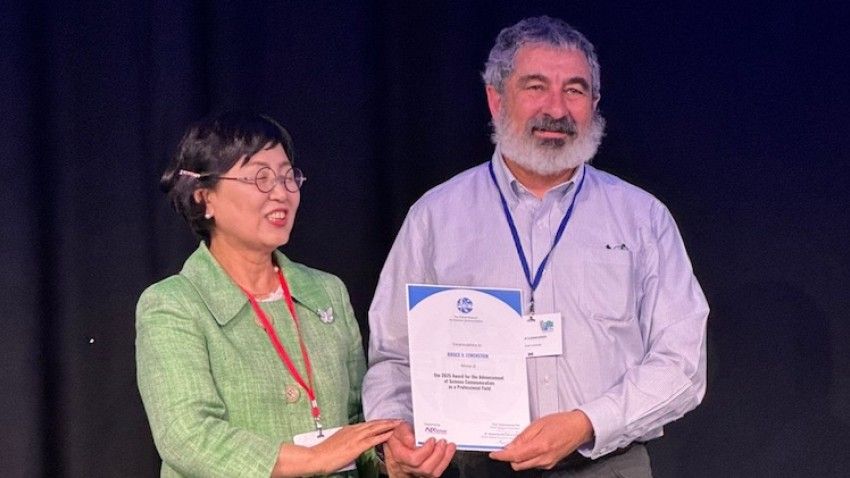
Lewenstein wins science communication prize
The inaugural Award for the Advancement of Science Communication as a Professional Field from the International Network on Public Communication of Science & Technology recognizes outstanding contributions to the development of science communication as a field.

Faculty, Staff Win 2025 SUNY Chancellor’s Awards for Excellence
The honor is presented annually, recognizing awardees on campuses across the SUNY system for their commitment to sustaining intellectual vibrancy, advancing the boundaries of knowledge, providing the highest quality of instruction and serving the public good.
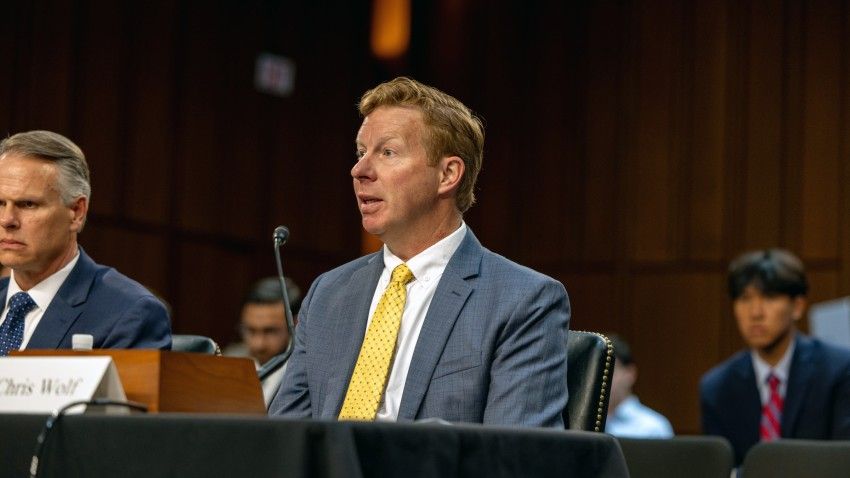
Wolf advises US Senate on aging population of American farmers
Professor and ag economist Chris Wolf testified on why farmers are the nation’s oldest workforce and how to encourage younger people to work in agriculture.

Microbes that extract rare earth elements also can capture carbon
Cornell geochemists and synthetic biologists have collaborated to improve the efficiency of microbes that can dissolve rocks to extract critical minerals while speeding carbon sequestration from air.

Cornell Atkinson awards catalyze solutions in food, climate, clean energy
Atkinson Venture Fund awards have distributed $21.7 million to 223 projects spanning every college on Cornell’s campus over 15 years.
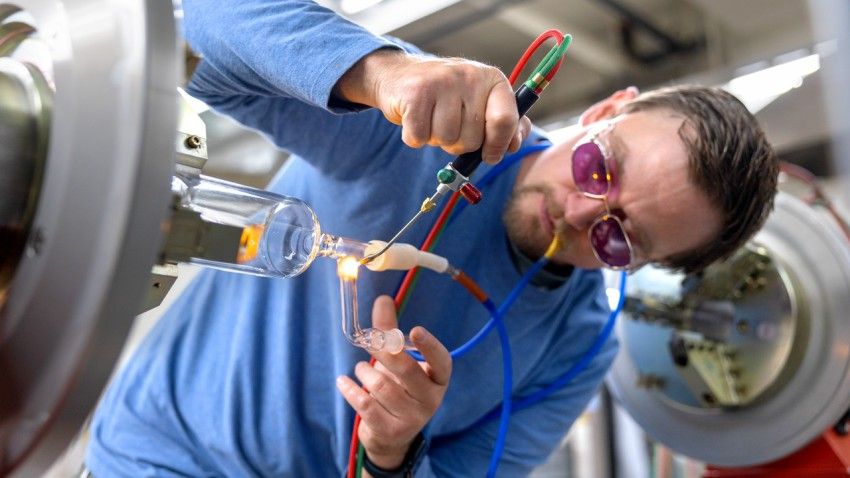
Fired up: Glassblower crafts the tools of innovation
Scientific glassblower Sean Donlon applies craftsmanship, problem-solving and a deep understanding of glass to support research and innovation.
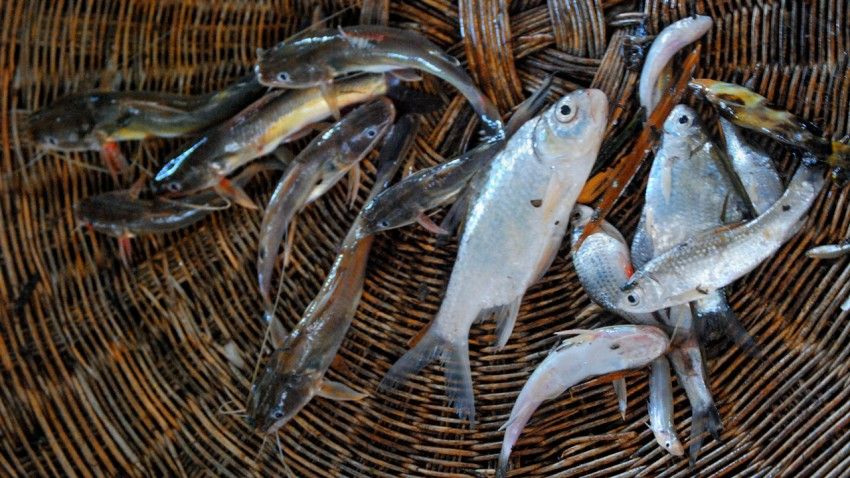
Biodiversity allows for sustainable fisheries, better nutrition
To satisfy the seafood needs of billions of people, offering them access to a more biodiverse array of fish creates opportunities to mix-and-match species to obtain better nutrition from smaller portions of fish.
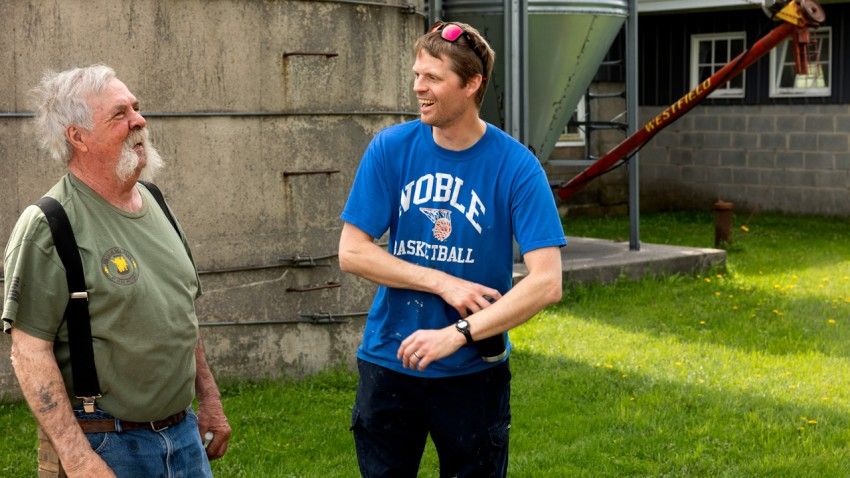
After Fort Drum, military vets embrace Mission: Agricultural
Northern New York Veterans in Agriculture (AgVets), a program run by Cornell Cooperative Extension Jefferson County, since 2020 has helped more than 2,200 area service members explore the field of agriculture through classes, tours and mentorships with local farmers.

Ecology and evolutionary biology doctoral student named Cobell Fellow
Doctoral student Cheyenne Reuben-Thomas is one of five fellows Cobell Graduate Summer Research Fellows for 2025, selected from a pool of over 100 graduate student applicants.

Research at risk: optimizing the US military’s nutritional ‘secret weapon’
A stop-work order imperils research that might enable U.S. active military members to benefit from better nutrition.

Fishing supports social wellbeing for Myanmar refugees
Since relocating to Upstate New York, Myanmar refugees’ relationship to fishing has shifted, from angling for food and nutrition to being a means for maintaining social connections, time outdoors and emotional well-being.
Become a Fellow
Stay up to Date
If you have a disability and are having trouble accessing information on this website or need materials in an alternate format, contact [email protected] for assistance.
CIDA Copyright 2023 | CIDA is an equal opportunity employer | Terms of Use | Privacy Policy